Russian Alphabet to English | Pronunciation and Transliteration

Russian Alphabet Pronunciation
Learning the Russian alphabet is an essential first step for anyone who is interested in learning the Russian language. The Russian alphabet, also known as the Cyrillic alphabet, is made up of 33 letters, some of which are similar to letters in the English alphabet and some of which are unique to the Russian alphabet.
One of the biggest challenges for English speakers learning the Russian alphabet is pronunciation, as the sounds of the Russian letters may be different from the sounds of the corresponding English letters. However, with a little bit of practice, it is possible to learn the correct pronunciation of the Russian alphabet.
To help you get started, here are some tips for correctly pronouncing the letters of the Russian alphabet:
How to Stress Words in Russian Pronunciation
When pronouncing Russian words, it is important to pay attention to the stress and to give the stressed syllable a slightly higher pitch and longer duration than the othe...
Хорошо или плохо? | How to Answer How Are You in Russian | What to say when someone asks how you are in Russian
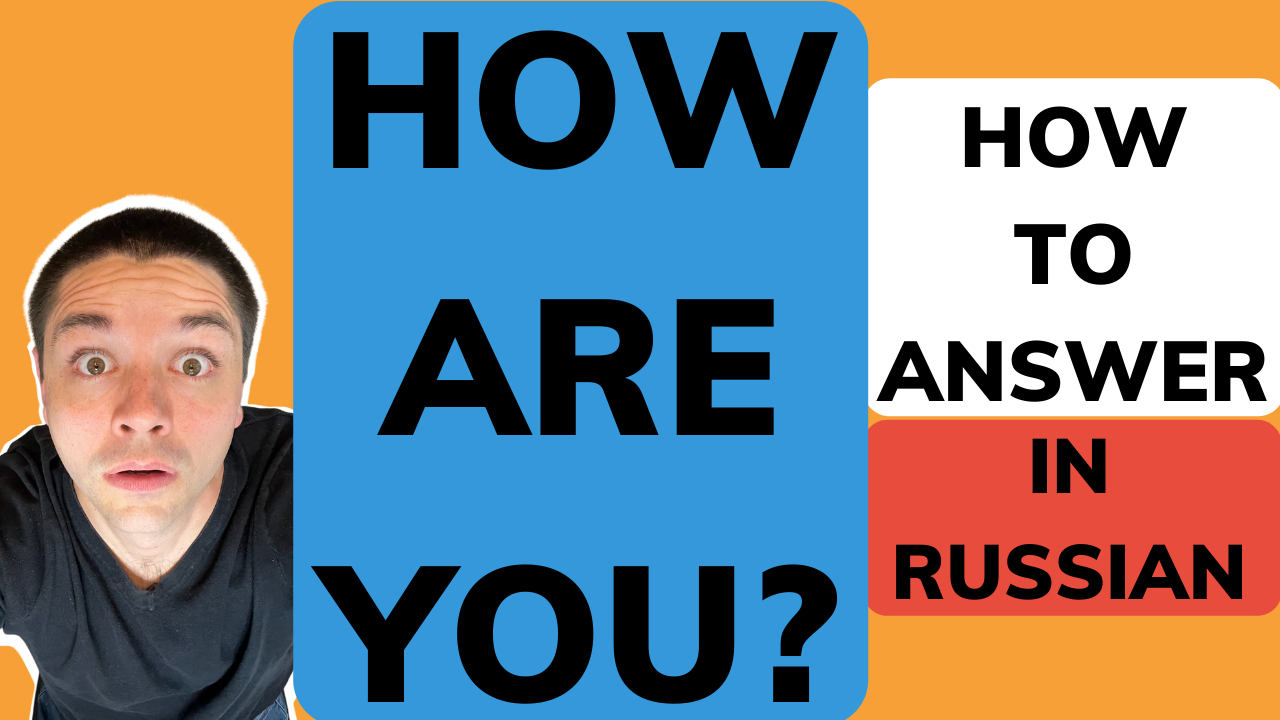
How to answer “How are you” in Russian
Typically when someone answers the question "How are you" in Russian there are three possible types of answers: positive, negative, and neutral. In English you are almost expected to give a positive answer because it facilitates the movement of the conversation from greetings and introductions to the real topics of discussion. But in Russian you are more likely to hear a range of positive, negative, and neutral responses. Remember that "How are you?" in English is very often a greeting, but in Russian it's not.
35 Ways to Answer "How are you" in Russian
There are so many different ways to answer this question that it's hard to make a list. I've included some of the most popular answers, but people are very creative and come up with new responses all the time. Try to find a few replies to this question that suit you.
Positive answers
Хорошо. = Fine.
Pronunciation: "hah-rah-SHO" ; /ha:ra:'ʃo/
You could also say "У меня всё хорошо." or just...
How to Ask How Are You in Russian | What's up in Russian | How's it going in Russian

Asking "How are you?" in Russian is different than asking it in English. First of all, Russian speakers ask these kinds of questions less often than English speakers because English uses them as greetings. Sometimes English speakers see each other and one says "What's up?", then the other says "How's it going?", and then they part ways. Neither answered the other's question. In Russian these questions are not rhetorical and answers are expected. So, after you learn how to ask "How are you?" in Russian, you need to learn how to answer "How are you?" in Russian.
“How are you doing?” in Russian
Как ты? = How are you?
Pronunciation: "kahk tee" ; /ka:k ti/
This is probably the easiest phrase to remember. In the present tense in Russian we omit the verb to be, so we don't need a word for "are" here. Just "Как ты?" is fine. If you want to change this informal phrase into a formal one, you can say "Как Вы?"
Как дела? = How are things?
Pronunciation: "kahk deh-LAH" ; /ka:k de'la:/
"Как д...
20 Russian Greetings and Farewells | Saying "Good morning!", "Hello", "Hi" in Russian
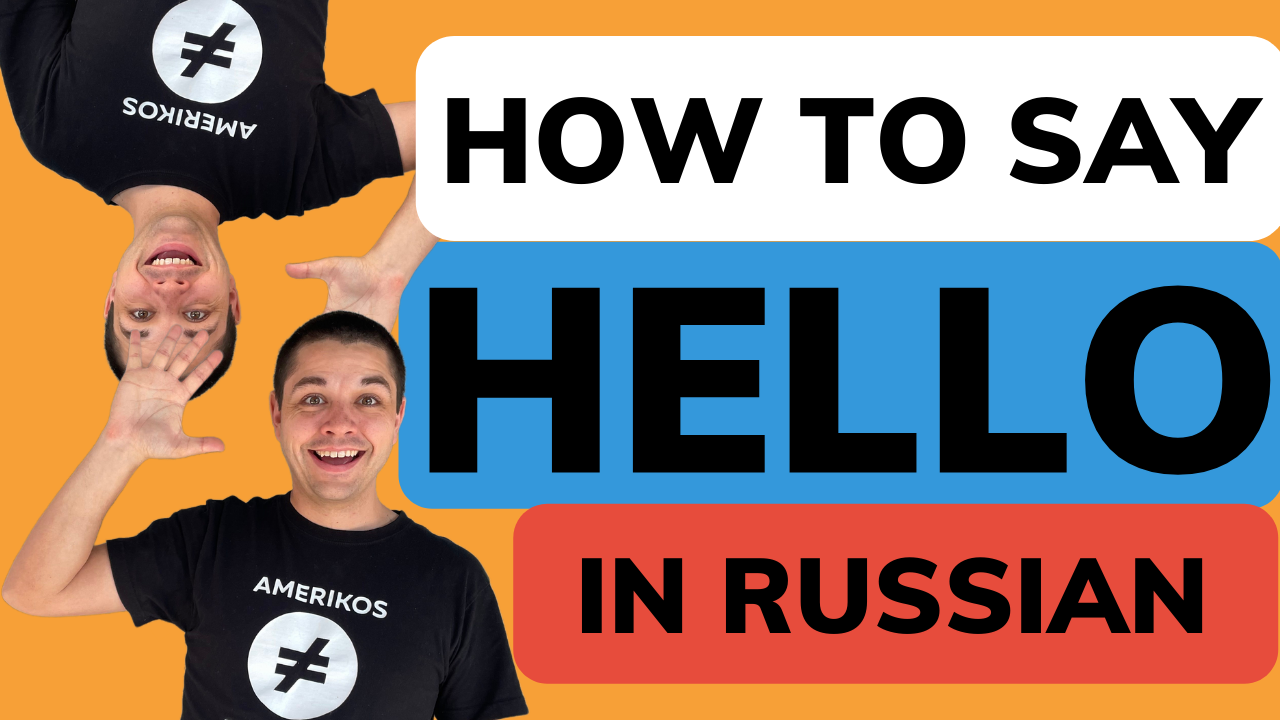
Informal farewells and greetings are used between family members, peer group members, and people of the same age. When you speak with someone older than you or in a higher position than you, social convention dictates that you use formal language.
“Hello!” in Russian
Здравствуйте! = Hello!
Pronunciation: "ZDRAHV-stvooy-tyeh" ; /'zdra:vstvu:ɪtje/
I'm not going to lie - this is difficult word to say. Some words in Russian have crazy consonant cluster and it just so happens that the word for "Hello!" is one of them. Yes, the word starts with three consonants Z, D, and R; and in the middle it has a four-consonant cluster of V, S, T, and V again. If you're having trouble saying S after V, have no fear. V is usually pronounced like F when it comes before another consonant sound, which helps us pronounce them together.
“Good morning!” in Russian
Доброе утро! = Good morning!
Pronunciation: "DOE-bro-yeh OO-truh" ; /'dobroje 'utrə/
If you're walking down the street in Moscow waving to ev...
How (and Why) to Say No in Russian | Detailed Explanation | Useful Intermediate Russian Vocabulary

Nyet, нет, no. You can write it in Russian with the Cyrillic alphabet: нет. You can write it in Russian with the Latin alphabet: nyet. Or you can just write it in English: no. But when you say it, say it decisively.
How do you say “No!” in Russian?
No! = Нет!
The word "нет" is pronounced like "nyet" in English or /njet/ in the International Phonetic Alphabet (IPA). The Russian letter "е" sounds like "yeh" in English or /je/ in IPA.
It can be difficult to remember that the letter "н" in Russian is pronounced like the letter "n" in English. And it can be difficult to recognize when a word is written in English or in Russian. For example, нет <-- This word was written using a Russian keyboard, but this word was written using an English keyboard --> HeT. Is it a new English word "het" or is it the Russian word "нет"?
How do you say “Yes!” in Russian?
Yes! = Да!
The word "да" is pronounced like "da" in English and /da/ in IPA. The letter "д" sounds like "d" in English.
It can be dif...
What does Есть mean?

There is no good English equivalent of the Russian word есть. The closest translations are to eat, to be, and sometimes even to have. Today we'll look at those three meanings.
Есть - How to say eat in Russian
There are other ways to say "eat" in Russian, such as:
- кушать
- хавать
- есть
Probably the most commonly used verb is кушать.
A realistic example using есть meaning "eat" would be:
- Будешь есть? (Will you eat? / Are you going to eat?)
Есть - How to say be in Russian
Есть also means "to be" in Russian. But it can be difficult to remember that in the present tense Russian tends to omit the verb "to be". So, you can say "Я есть Крис", but most people would say just "Я Крис".
Other verbs that also mean "to be":
- быть
- являться
- есть
A realistic example using есть meaning "be" would be:
- Он есть врач. (He is a doctor. / He is the doctor.)
Есть - How to say have in Russian
We can also use the word есть in a special construction that means "to have". Fo...
Don't say женщина

The Russian words девушка and женщина are not exact translations of their English equivalents: girl and woman. These words communicate nuances that are important to understand, due to their social implications.
Russian Girl or Woman
If we open up a translation dictionary, it will show us this:
- девочка = young girl
- девушка = girl
- женщина = woman
- бабушка = grandmother
- мальчик = boy
- молодой человек = young man
- мужчина = man
- дедушка = grandfather
And those translations are great. But they leave out social context.
How to speak with Russian women
In Russia, young women are usually called девушка. Whereas in English the word girl can imply immaturity and the word woman can imply maturity (psychological and otherwise), in Russian the word женшина implies that the person looks old. That's why you might call someone девушка even when they are 40 or older - to imply that they look young.
Getting a Russian Woman's Attention
When we want to get the attention of someone in Russ...
Prepositions В/На In Prepositional case in Russian.
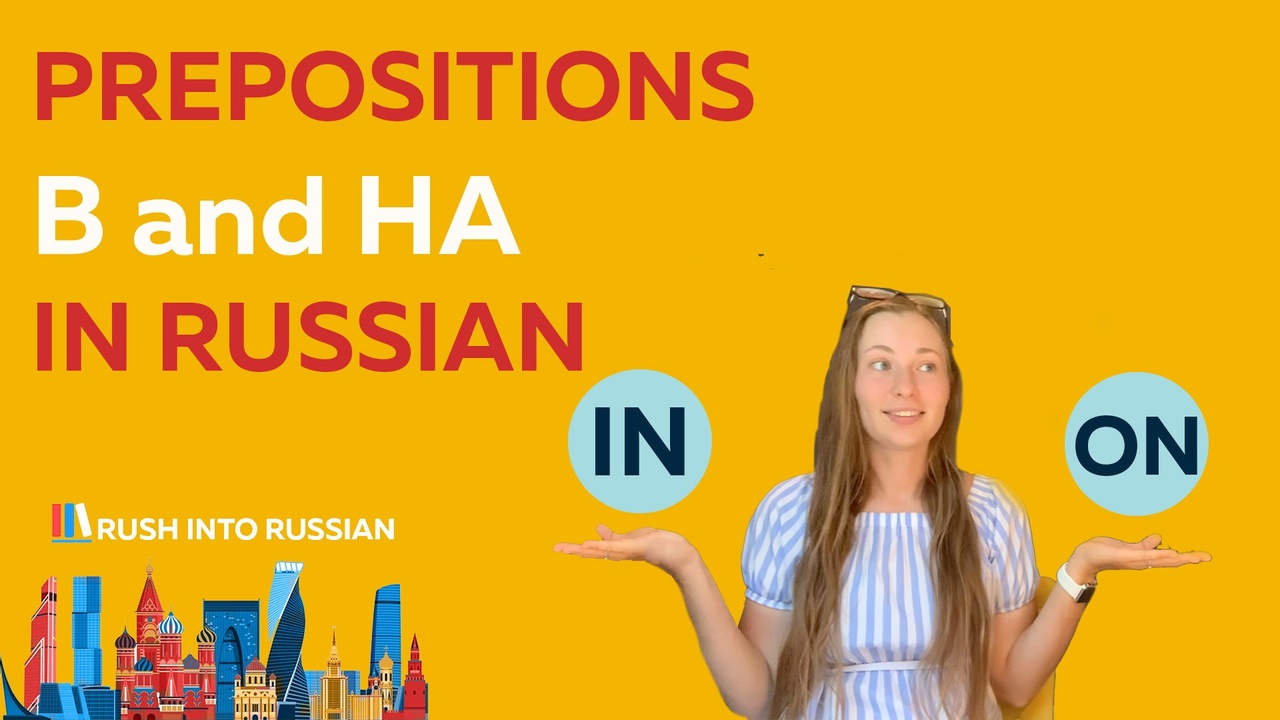
Prepositions В/На often go together with the prepositional cases in the Russian language. And they are usually the first topic in Russian grammar that seems easy enough to figure out without extra help because they are the same as in English: "В" means "IN". The coffee is IN the cup - кофе в чашке. "На" means "ON". The cup is ON the table - чашка на столе. So this brings us to the simplest use of "В" and "На":
"В" meaning inside
в до́ме, в самолёте, в кварти́ре, в столе
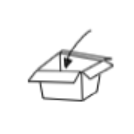
or "В" with institutions and establishments
Think of them as buildings, and you being inside of a building - it is very easy:
в институ́те, в университе́те, в рестора́не, в кафе́, в шко́ле, в о́фисе, в кинотеа́тре, в магази́не, в оте́ле, в клу́бе, в музе́е

"НА" meaning ON with surfaces and floors
на этаже́, на земле́, на у́лице, на проспе́кте, на столе́, на пля́же
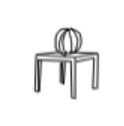
But of course, as a lot of things in Russian grammar, what seems so easy in the beginning has some hidden tricks. Because on the other hand, ...
How do Russians drink tea? And why!
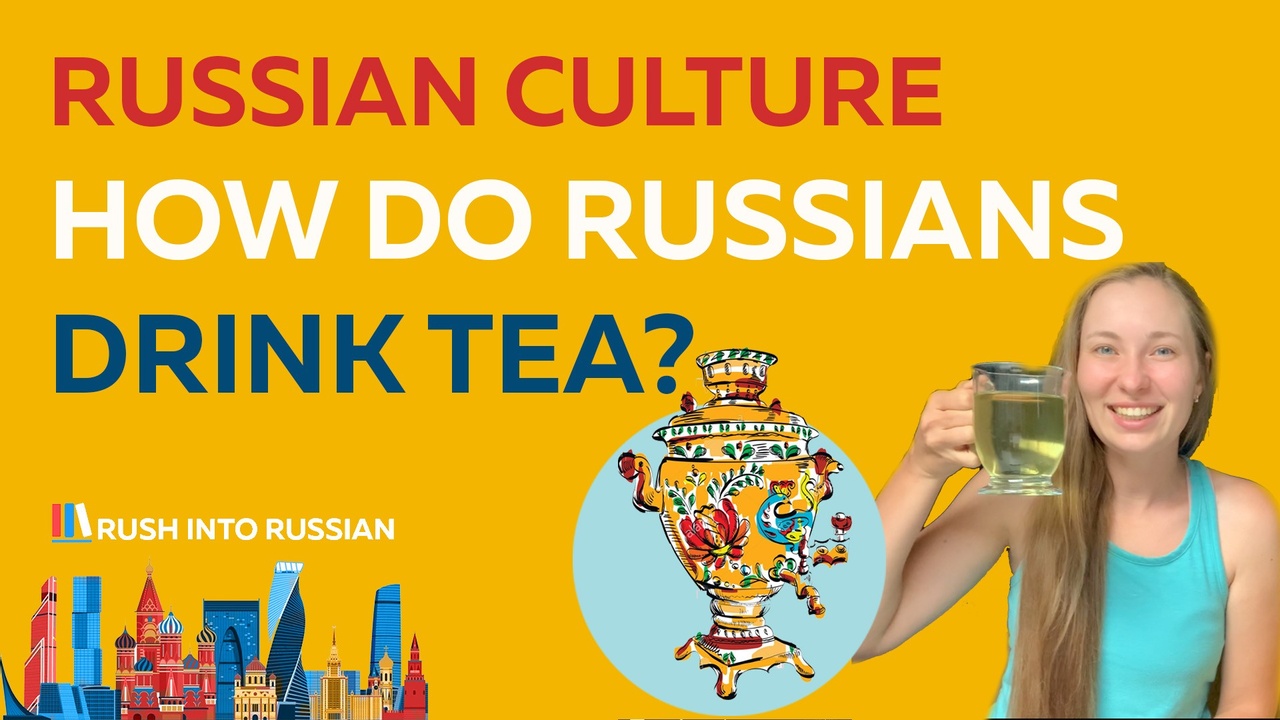
Did you know Russian people like tea more than vodka? Big surprise, right? They drink tea with lemon and/or milk, they can add sugar or jam. Russians drink tea daily, sometimes around-the-clock, everywhere - and on any occasion.
1. Russians love drinking their tea - always and everywhere
All nations have their own rules on when it's an appropriate time for particular drinks. Americans love their coffee. British people are famous for having tea at 5 o'clock. Italians don't drink cappuccinos after 12 pm. Well, in Russia, people drink tea in the morning, afternoon or evening, for breakfast, lunch, and dinner, sometimes as a snack and in the middle of the night. You name it - and there is a reason to have tea at that time on that occasion.
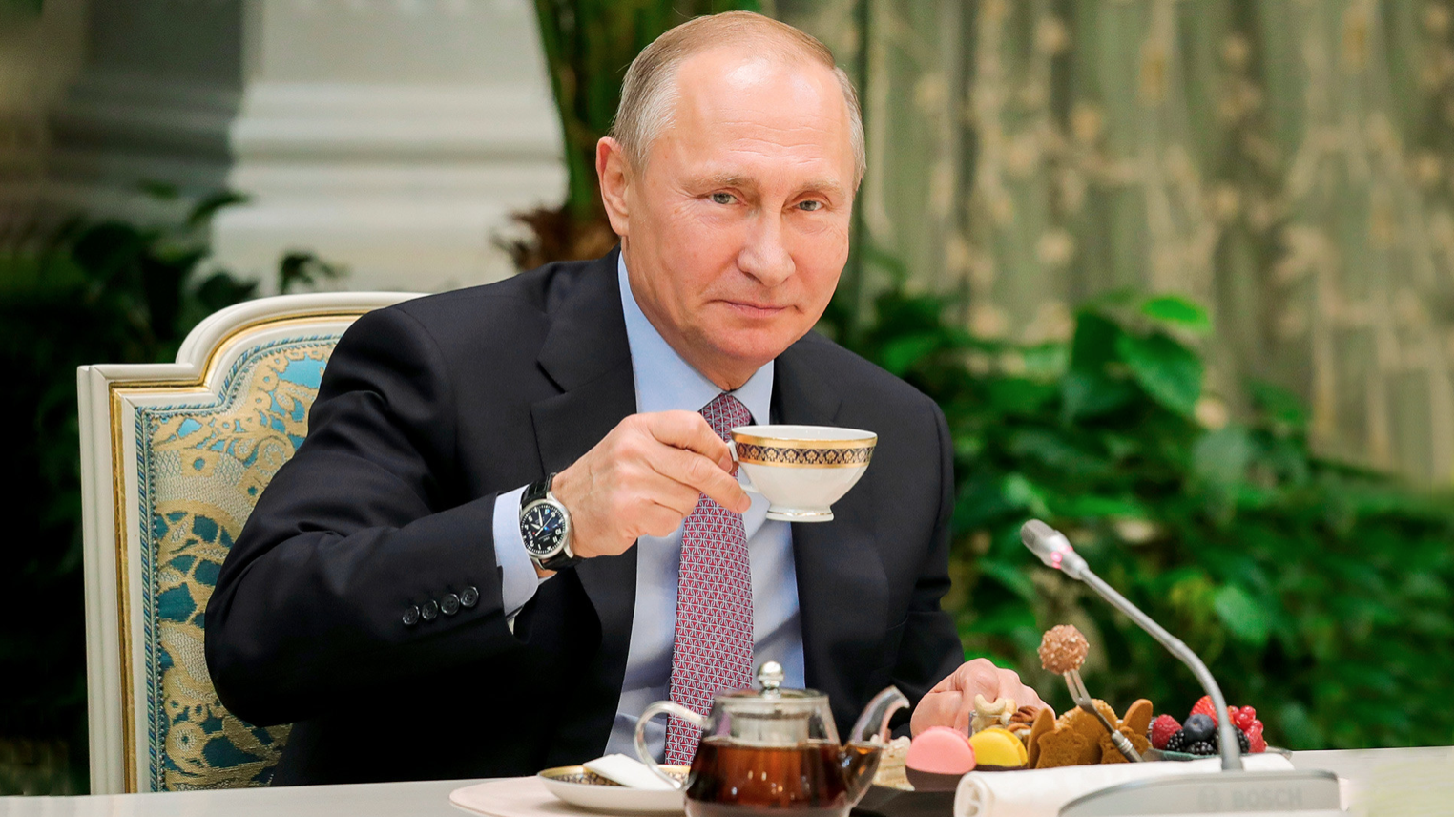
Here are some useful phrases you might hear connected to drinking tea in Russia:
- Заходи на чай - come over for tea,
- Чаёвничать - the process of drinking tea (more about conversations, then tea),
- Что-то к чаю - something to eat while drinking ...





